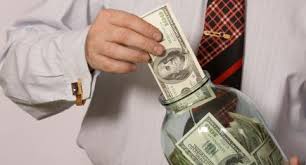Leu Marholin: The process of spending people’s money may last for 4-5 years

It is expected that the Belarusians, who are earning less, but have professions with good job opportunities, will rush abroad to find a better use of their abilities.
In May 2016 individuals bought foreign currency to the sum of $464.50 million, while sold to the sum of $681.10 million. According to the National Bank, net sales amounted to $216.60 million. Net sales for January-May 2016 amounted to $563.55 million.
Belarusians are gradually but steadily spending the money supply accumulated during the "prosperous" life. When they run out of cash, real estate and property will be put to use.
For how long will the accumulated supply last? And what will happen when it runs out?
The economist Leu Marholin commented on the situation in an interview with the EuroBelarus Information Service.
- The population sells $200-250 million more monthly than it buys, and this trend has been going on for a long time. What does this mean?
- People got used to a certain standard of living. When prices are rising and incomes remain unchanged, they have to increase spending at the expense of former savings. This is the first stage in the situation where costs exceed revenues. When people run out of liquidity and accumulated cash the second stage will begin - real estate and property will be put to use. People will start selling three-bedroom apartments and will be buying two-bedroom. People have already started reducing expenses, but the process seems to be only growing.
How may the impoverishment of the population end up? Some believe that social explosion is a logical ending to that. Personally, I think that the chances are "fifty-fifty". There are countries that have been suffering from impoverishment for quite long, but people withstand impoverishment fairly easily. In general, the process can drag on for years. However, the situation may proceed in accordance with the Ukrainian scenario where a small event exploded the whole society.
- How long can the process of spending people’s money last?
- According to the experts’ calculations, which were made two or three years ago, people used to have about $7bilion on them and about the same amount on hand. Even if people’s monthly savings are reduced by $250 million, the process of spending people’s money may last for as long as 4-5 years.
However, it’s a heterogeneous process, just as the notorious average salary is: someone has savings, while others have nothing.
- How does spending of savings by the population influence the economy? Or there is no direct connection between the two?
- It is rather a consequence of the economic situation than the reason. Working population, who lose their salaries, with falling incomes, but who have professions with good job opportunities, will rush abroad to find a better use of their abilities. Even in today's Russia it’s possible to earn $500-600 instead of the former $1000-1500: the income is still several times higher than today's salary in Belarus that amounts to $250-300. And if there’s no possibility to earn money in Russia, people will go to Poland and Lithuania, where shortage of labor is felt even today.
And secondly, we have the example of Moldova, Ukraine, and hundreds of thousands of citizens who, despite the visa restrictions, managed to cross the western border in search of work in Eastern and Western Europe.
- Thus, labor migration is the only way to earn money, isn’t it?
- Of course. There are some categories, professions, and businessmen in our country, who don’t suffer from some additional burden. However, most people do.
There is only one way-out: if one has strength and health, it’s better to try one’s luck in foreign lands.
-
03.01
-
07.10
-
22.09
-
17.08
-
12.08
-
30.09










































